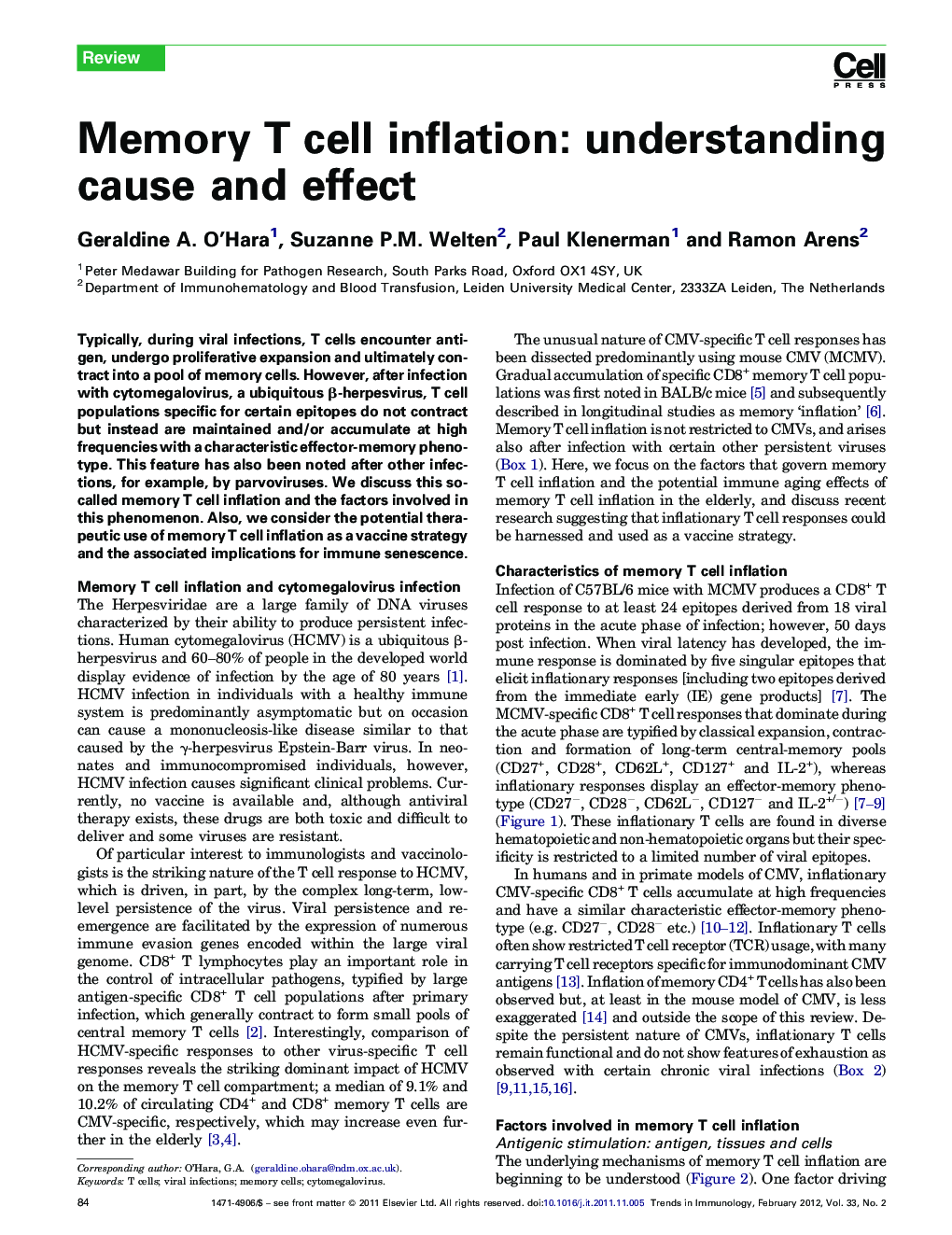| Article ID | Journal | Published Year | Pages | File Type |
|---|---|---|---|---|
| 4360023 | Trends in Immunology | 2012 | 7 Pages |
Abstract
Typically, during viral infections, T cells encounter antigen, undergo proliferative expansion and ultimately contract into a pool of memory cells. However, after infection with cytomegalovirus, a ubiquitous β-herpesvirus, T cell populations specific for certain epitopes do not contract but instead are maintained and/or accumulate at high frequencies with a characteristic effector-memory phenotype. This feature has also been noted after other infections, for example, by parvoviruses. We discuss this so-called memory T cell inflation and the factors involved in this phenomenon. Also, we consider the potential therapeutic use of memory T cell inflation as a vaccine strategy and the associated implications for immune senescence.
Related Topics
Life Sciences
Immunology and Microbiology
Immunology
Authors
Geraldine A. O’Hara, Suzanne P.M. Welten, Paul Klenerman, Ramon Arens,
